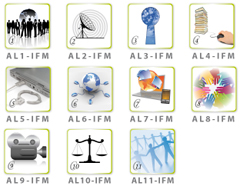
The work of the United Nations on internet governance spans across several agencies and bodies within the UN work, most notably the International Telecommunication Union (ITU), the United Nations Group on the Information Society (UNGIS), the United Nations Development Programme (UNDP), the United Nations Department of Economic and Social Affairs (DESA), the United Nations Conference on Trade amd Development (UNCTAD) and UNESCO.
Much of the United Nations’ engagement relates back to the World Summit on the Information Society (WSIS), the Geneva (2003) and Tunis (2005) conferences aiming to bridge the digital divide and take concrete steps to establish foundations for an information society for all. In Geneva, a common vision of the information society was agreed upon and underpinned with a plan of action, setting out to bring 50 percent of the world’s population online by 2015. This was followed up with the Tunis Commitment and an agenda for the information society in 2005. The World Summit established May 17 as World Information Society Day.

The main follow-up process to the World Summit is the WSIS Stocktaking Process, which provides a register of activities carried out by governments, international organisations, the business sector, civil society and other stakeholders with reference to the eleven action lines defined by the World Summit’s Plan of Action. In 2010, the World ICT Development Report (pdf) by ITU focused on monitoring the targets set by the summit. Regular WSIS Fora and a WSIS Community further contribute to connecting, recording and coordinating stakeholder initiatives to implement the action plan.
The World Summit on the Information Society also called—following a recommendation of the Working Group on Internet Governance—for the establishment of the Internet Governance Forum, which convened for the first time in 2006 as a multi-stakeholder forum for policy dialogue on internet governance. The IGF intends to bring together all stakeholders in the internet governance discourse on an equal basis, from governments and the private sector to civil society and the academic community.
The Internet Governance Forum has met in
2006 in Athens – Report (pdf) | 2007 in Rio de Janeiro – Report (pdf) | 2008 in Hyderabad – Report (pdf) | 2009 in Sharm El Sheikh – Report (pdf) | 2010 in Vilnius – Report (pdf)
and will next meet in Nairobi in September 2011. (Its mandate has been extended by the United Nations’ General Assembly (resolution, pdf) for another five years – from 2011 to 2015).
In May 2011, the UN Special Rapporteur on freedom of opinion and expression, Frank La Rue, published a report on the promotion and protection of the right to freedom of opinion and expression (pdf), exploring “key trends and challenges to the right of all individuals to seek, receive and impart information and ideas of all kinds through the Internet.” In its introduction, the report
“underscores the unique and transformative nature of the Internet not only to enable individuals to exercise their right to freedom of opinion and expression, but also a range of other human rights, and to promote the progress of society as a whole. Chapter III of the report underlines the applicability of international human rights norms and standards on the right to freedom of opinion and expression to the Internet as a communication medium (…)”,
La Rue, Frank (2011): report on the promotion and protection of the right to freedom of opinion and expression. Page 1.
and the conclusion stresses that
“the full guarantee of the right to freedom of expression must be the norm, and any limitation [prescribed by international human rights law] considered as an exception, and that this principle should never be reversed.”
La Rue, Frank (2011): report on the promotion and protection of the right to freedom of opinion and expression. Page 19.
Further publications of the United Nations on digital governance include:
- Implementing WSIS Outcomes: Experience to Date and Prospects for the Future (2011, pdf)
- Measuring the WSIS targets: A statistical framework (2011, pdf)
- Report on the WSIS Stocktaking 2010: Tracking Progress (2010, pdf)
- Measuring the Information Society (2010, pdf)
- Towards inclusive knowledge societies: implementing the WSIS outcomes (2010, pdf)
The United Nation’s work on internet governance is coordinated by the United Nations Group on the Information Society (UNGIS) together with the International Telecommunication Union (ITU).